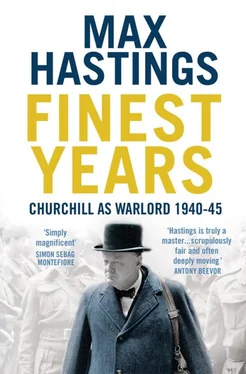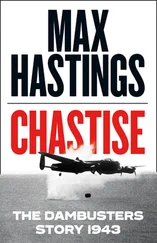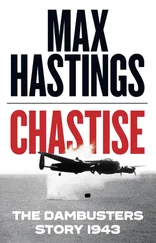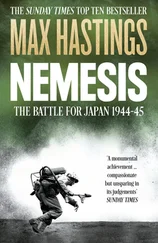Few of the ministers whom he invited to join his all-party coalition were equal to the magnitude of their tasks. If this is true of all governments at all times, it was notably unfortunate now. Twenty-one out of thirty-six senior office-holders were, like Halifax, David Margesson, Kingsley Wood and Chamberlain himself, veterans of the previous discredited administration. ‘Winston has not been nearly bold enough with his changes and is much too afraid of the [Conservative] Party,’ wrote Amery, who had led the Commons charge against Chamberlain.
Of the Labour recruits—notably Clement Attlee, A.V. Alexander, Hugh Dalton, Arthur Greenwood and Ernest Bevin—only Bevin was a personality of the first rank, though Attlee as deputy prime minister would provide a solid bulwark. Sir Archibald Sinclair, the Liberal leader who had served as an officer under Churchill in France in 1916 and now became Secretary for Air, was described by those contemptuous of his subservience to the new prime minister as ‘head of school’s fag’. Churchill’s personal supporters who received office or promotion, led by Anthony Eden, Lord Beaverbrook, Brendan Bracken and Amery, were balefully regarded not only by Chamberlain loyalists, but also by many sensible and informed people who were willing to support the new prime minister, but remained sceptical of his associates.
Much of the political class thought Churchill’s administration would be short-lived. ‘So at last that man has gained his ambition,’ an elderly Tory MP, Cuthbert Headlam, noted sourly. ‘I never thought he would. Well—let us hope that he makes good. I have never believed in him. I only hope that my judgement…will be proved wrong.’ The well-known military writer Captain Basil Liddell Hart wrote gloomily on 11 May: ‘The new War Cabinet appears to be a group devoted to “victory” without regard to its practical possibility.’ Lord Hankey, veteran Whitehall éminence grise and a member of the new government, thought it ‘perfectly futile for war’ and Churchill himself a ‘rogue elephant’.
Even as Hitler’s Panzer columns drove for Sedan and pushed onward through Holland and Belgium, Churchill was filling lesser government posts, interviewing new ministers, meeting officials. On the evening of 10 May Sir Edward Bridges, the shy, austere Cabinet Secretary, called at Admiralty House, where Churchill still occupied the desk from which he had presided as First Lord. Bridges decided that it would be unbecoming for an official who until that afternoon had been serving a deposed prime minister, too obsequiously to welcome the new one. He merely said cautiously: ‘May I wish you every possible good fortune?’ Churchill grunted, gazed intently at Bridges for a moment, then said: ‘Hum. “Every good fortune!” I like that! These other people have all been congratulating me. Every good fortune!’
At Churchill’s first meeting with the chiefs of staff as prime minister on 11 May, he made two interventions, both trifling: he asked whether the police should be armed when sent to arrest enemy aliens, and he pondered the likelihood of Sweden joining the war on the Allied side. Even this most bellicose of men did not immediately attempt to tinker with the movements of Britain’s army on the Continent. When Eden, the new Secretary for War, called on the prime minister that day, he noted in his diary that Churchill ‘seemed well satisfied with the way events were shaping’. If these words reflected a failure to perceive the prime minister’s inner doubts, it is certainly true that he did not perceive the imminence of disaster.
Churchill cherished a faith in the greatness of France, the might of her armed forces, most touching in a statesman of a nation traditionally wary of its Gallic neighbour. ‘In Winston’s eyes,’ wrote his doctor later, ‘France is civilisation.’ Even after witnessing the German conquest of Poland and Scandinavia, Churchill understood little about the disparity between the relative fighting powers of Hitler’s Wehrmacht and Luftwaffe, and those of the French and British armies and air forces. He, like almost all his advisers, deemed it unthinkable that the Germans could achieve a breakthrough against France’s Maginot Line and the combined mass of French, British, Dutch and Belgian forces.
In the days that followed his ascent to Downing Street on 10 May, Churchill set about galvanising the British machinery of war and government for a long haul. As war leader, he expected to preside over Britain’s part in a massive and protracted clash on the Continent. His foremost hope was that this would entail no such slaughter as that which characterised the 1914-18 conflict. If he cherished no expectation of swift victory, he harboured no fear of decisive defeat. On 13 May, headlines in The Times asserted confidently: ‘BRITISH FORCES MOVING ACROSS BELGIUM—SUCCESSFUL ENCOUNTERS WITH ENEMY—RAF STRIKES AGAIN’.
Addressing the Commons that day, the prime minister apologised for his brevity: ‘I hope that…my friends…will make allowance, all allowance, for any lack of ceremony with which it has been necessary to act…We have before us an ordeal of the most grievous kind. We have before us many, many long months of struggle and of suffering…But I take up my task with buoyancy and hope. I feel sure that our cause will not be suffered to fail among men. At this time I feel entitled to claim the aid of all, and I say: “Come then, let us go forward together with our united strength.” ’
Churchill’s war speeches are usually quoted in isolation. This obscures the bathos of remarks by backbench MPs which followed those of the prime minister. On 13 May, Major Sir Philip Colfox, West Dorset, said that although the country must now pursue national unity, he himself much regretted that Neville Chamberlain had been removed from the premiership. Sir Irving Albery, Gravesend, recalled the new prime minister’s assertion: ‘My policy is a policy of war.’ Albery said he thought it right to praise his predecessor’s commitment to the cause of peace. Colonel John Gretton, Burton, injected a rare note of realism by urging the House not to waste words, when ‘the enemy is almost battering at our gates’. The bleakest indication of the Conservative Party’s temper came from the fact that while Neville Chamberlain was cheered as he entered the chamber that day, Churchill’s appearance was greeted with resentful Tory silence.
This, his first important statement, received more applause from abroad than it did from some MPs. The Philadelphia Inquirer editorialised: ‘He proved in this one short speech that he was not afraid to face the truth and tell it. He proved himself an honest man as well as a man of action. Britain has reason to be enheartened by his brevity, his bluntness and his courage.’ Time magazine wrote: ‘That smart, tough, dumpy little man, Prime Minister Winston Churchill, knows how to face facts…Great Britain’s tireless old firebrand has changed the character of Allied warmongering.’
That day, 13 May, the threat of German air attack on Britain caused Churchill to make his first significant military decision: he rejected a proposal for further fighter squadrons to be sent to France to reinforce the ten already committed. But while the news from the Continent was obviously bleak, he asserted that he was ‘by no means sure that the great battle was developing’. He still cherished hopes of turning the tide in Norway, signalling to Admiral Lord Cork and Orrery on 14 May: ‘I hope you will get Narvik cleaned up as soon as possible, and then work southward with increasing force.’
Yet the Germans were already bridging the Meuse at Sedan and Dinant, south of Brussels, for their armoured columns emerging from the Ardennes forests. A huge gap was opening between the French Ninth Army, which was collapsing, and the Second on its left. Though the BEF in Belgium was still not seriously engaged, its C-in-C Lord Gort appealed for air reinforcements. Gort commanded limited confidence. Like all British generals, he lacked training and instincts for the handling of large forces. One of the army’s cleverest staff officers, Colonel Ian Jacob of the war cabinet secretariat, wrote: ‘We have for twenty years thought little about how to win big campaigns on land; we have been immersed in our day-to-day imperial police activities.’
Читать дальше












